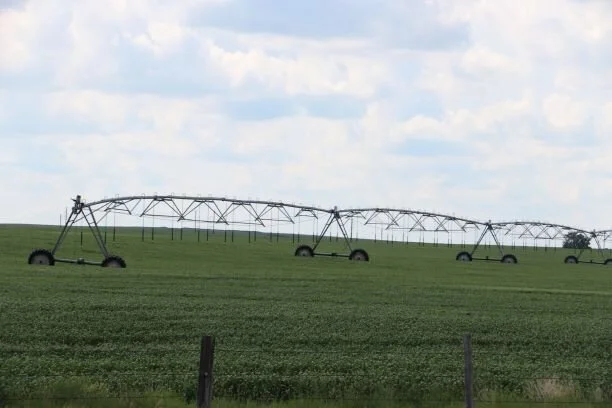Two communities in southern Saskatchewan officially cut the ribbon Tuesday on a new $3.3-million wastewater treatment facility that is being touted as eco-responsible and award-winning. The facility will serve businesses and about 300 people in Lebret, and another 126 people in Wa-Pii Moos-Toosis on Star Blanket Cree Nation, according to a release.
Saskatchewan alleges federal employees illegally taking water samples from farmers
The Saskatchewan Party government says it wants an explanation from Ottawa after federal employees allegedly took water samples from farmers’ lands without permission. Jeremy Cockrill, the minister responsible for the province’s Water Security Agency, said three landowners in southern Saskatchewan had recent unannounced visits from federal employees. He said during each separate instance, the employees, who arrived in black Government of Canada vehicles, took samples from dugouts without the landowners’ permission.
Regina and southern Sask. drying out after rainfall causes flooding
Areas of southern Saskatchewan were inundated with rainfall Monday night. The City of Regina said Tuesday that that 40 to 60 mm of precipitation fell in a "significant rainstorm event." The rainfall had major impacts on underpasses and intersections, causing flooding and road closures. Kurtis Doney, the city's director of water, waste, and environment, said that despite some difficulty motorists had in getting around the city after the rain, the city's infrastructure was holding up. "The flooding will clear as the system allows it to," said Doney. "There may still be some localized areas that need to be addressed because of what storm drains. But in general, 24 hours is what the storm system typically takes to recover."
A prairie hot spot for shorebirds is now a conservation site in Sask.
The conservation site, called the Mackie Ranch conservation project, includes a large section of native grassland as well as part of the eastern shoreline of Chaplin Lake, a few kilometres off the Trans-Canada Highway between Moose Jaw and Swift Current, according to the NCC. Grasslands are among the most at-risk ecosystems in the world, according to the national conservation organization. They filter water, help prevent flooding as well as droughts and sequester carbon.
Water Security Agency Holds Open House Events For Lake Diefenbaker Irrigation Projects
The public is invited to take part in a couple of open house events this week to learn more about the Lake Diefenbaker Irrigation Projects. The 10 year multi-project is expected to provide a major boost for the Province's agriculture sector. Once completed, the Lake Diefenbaker Projects will provide over 500,000 acres of agricultural land in southern and central Saskatchewan with water. Patrick Boyle, the Executive Director of Communications with the Water Security Agency, says they are holding a couple of open house events this week so that people have a better understanding of the work that is being planned and the impact it will have for the areas.
Spring runoff potential varies across Saskatchewan from well below normal to above normal
Most of southern Saskatchewan has the potential for a below to well below normal spring runoff, according to preliminary data released Friday by the Water Security Agency. The north, however, could experience a normal to above normal runoff. The WSA said it bases its estimates on a number of factors, including conditions at freeze-up and the snowpack. Most of the southern regions experienced very dry conditions last summer and into the fall, and the snowpack is near normal to below normal. The WSA says this projects to a below normal runoff for an area covering Prince Albert, Saskatoon and Melfort, dipping as far south as Maple Creek and Val Marie.
Global warming increases human health risk due to toxic algae in Canadian Prairie lakes
New research by scientists at the University of Regina’s Institute of Environmental Change and Society shows that global warming is increasing levels of toxic algae detrimental to human health. The study was published online, in the journal Limnology and Oceanography Letters. “Our decade-long project establishes that global warming is increasing toxin levels in Prairie lakes,” says Dr. Peter Leavitt, a Canada Research Chair in Environmental Change and Society and a co-author of the study. “What is particularly worrying is that the chance of exceeding toxin levels that cause acute human health effects has increased to one in four in several lakes in southern Saskatchewan.”








